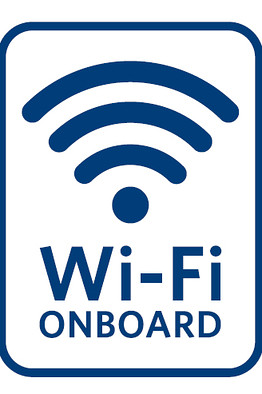 As technology becomes progressively more important to travelers, Digital Trends was prompted to survey the currently available technology provided by airlines, as well as what is on the horizon to be rolled out. Their findings were published in an article for the website, in which the author ranks existing technology on airlines. In general, there were several prevalent trends. All airlines offer online check-in services; Wi-Fi is in the process of becoming as prevalent, although it is a slower task. Social media sites are used by all airlines, for varying purposes. Most often, the sites are used to provide real time news, such as delays, or to assist customers in their travel plans. Power outlets are becoming progressively more prevalent as well, despite the fact that they were once only available in the more exclusive cabins. In general, airlines that operate using only one single type of airplane are quicker to add technology, as different applications for different machines don’t need to be taken. This means that Jetblue, Southwest and Virgin America were generally the flights that provided the most tech options.
As technology becomes progressively more important to travelers, Digital Trends was prompted to survey the currently available technology provided by airlines, as well as what is on the horizon to be rolled out. Their findings were published in an article for the website, in which the author ranks existing technology on airlines. In general, there were several prevalent trends. All airlines offer online check-in services; Wi-Fi is in the process of becoming as prevalent, although it is a slower task. Social media sites are used by all airlines, for varying purposes. Most often, the sites are used to provide real time news, such as delays, or to assist customers in their travel plans. Power outlets are becoming progressively more prevalent as well, despite the fact that they were once only available in the more exclusive cabins. In general, airlines that operate using only one single type of airplane are quicker to add technology, as different applications for different machines don’t need to be taken. This means that Jetblue, Southwest and Virgin America were generally the flights that provided the most tech options.
Virgin America won the title of most tech conscious airline. Every plane offers Wi-Fi, AC and USB power. The planes also offer video on demand, to be streamed through the seat back monitors. Seat to seat chat is also provided, as well as a food ordering system, a map view from Google Maps and an in-flight social network. However, the airline does have some shortcomings. It doesn’t offer live television, which is an increasing trend in tech-friendly airlines. It also doesn’t offer a mobile app or mobile boarding pass. However, since its amenities are available across their entire fleet, Virgin America still takes the price in terms of being tech-friendly. Jetblue serves as the runner-up, with the introduction of its own Wi-Fi system in the process of occurring. Southwest earns an honorable mention, in that it offers a fast satellite based Wi-Fi that allows passengers to stream video directly to their devices. However, there are no power outlets, which inhibits how much streaming is really possible.
Generally, the article found that airlines that boast of cheap flights were unapologetic in their lack of technology adaptations. They acknowledged that the lack of frills was how they kept their prices low. Along similar lines, legacy airlines, such as American, Delta and United tend to fall behind in the tech crunch. However, the article disclaimed not to count the airlines out; they run on a variety of aircrafts and, therefore, are simply a bit slower to add the amenities.
 Facebook and its owner Mark Zuckerberg have long been known for a “move fast and break things” approach to business. However, as the corporation turns ten years old and its owner turns thirty in just a few weeks, it appears they are seeking to shake off that reputation as they turn to more mature means of proceeding in business. Several announcements made at the company’s F8 developer conference in San Francisco speak to a more helpful and widespread business plan, according to an
Facebook and its owner Mark Zuckerberg have long been known for a “move fast and break things” approach to business. However, as the corporation turns ten years old and its owner turns thirty in just a few weeks, it appears they are seeking to shake off that reputation as they turn to more mature means of proceeding in business. Several announcements made at the company’s F8 developer conference in San Francisco speak to a more helpful and widespread business plan, according to an